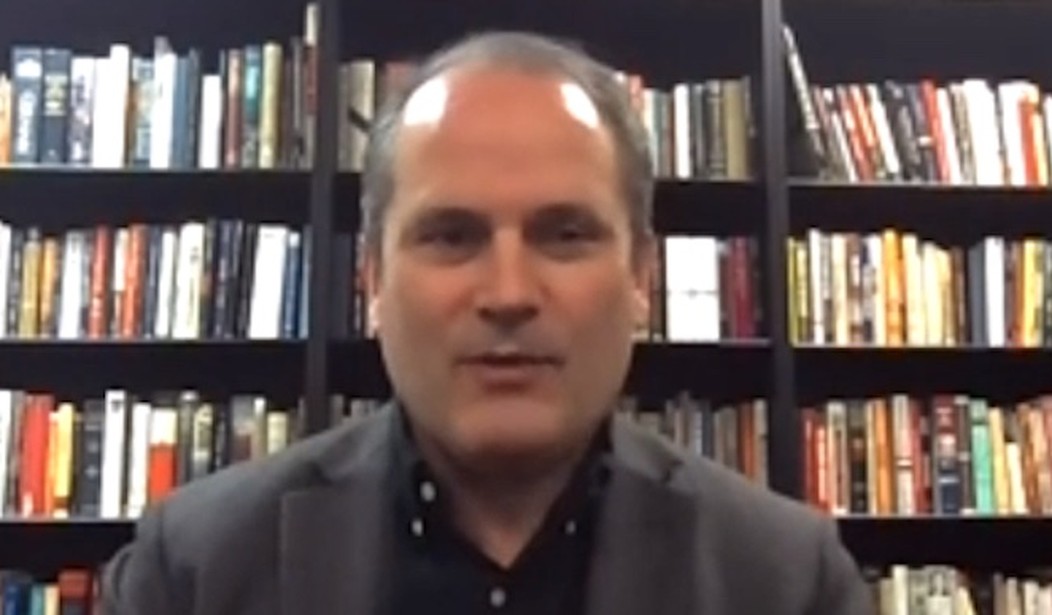In the fifty years since the Paris Peace Accords ended our military involvement in Vietnam, a consensus has long been locked in place about America’s war in southeast Asia. The effort to defend democratic(-ish) South Vietnam was an imperialist folly and an immoral war of choice using the Vietnamese as proxies. We never had a chance to win the war, and efforts to do so only strengthened our enemies.
But is that what actually happened? I sat down for a lengthy conversation with Mark Moyar, the William P. Harris Chair of Military History at Hillsdale College and author of Triumph Regained: The Vietnam War, 1965-1968. In the latest episode of The Ed Morrissey Show podcast, we discuss how the narrative of futility formed during the war and dominated the discussion for decades afterward.
“Almost none of it is right,” Moyar declares, “and that’s why I’ve spent so much time writing Vietnam books.” The American veterans of the war as well as the people of former South Vietnam deserve an honest accounting of what actually happened, not the all-too-easy gloss that we walked away from a war we couldn’t win. In fact, Moyar argues based on new access to Vietnamese records, we largely had the war won by the time Richard Nixon got elected — and slowly let it slip away from us.
“The Vietnamese Communist government of today is still a police state that doesn’t allow anyone just to walk into its archives and see the critical records,” Moyar explains, “but they’ve published quite a bit, and actually some of this has been out for a while … Surprisingly, actually, a lot of historians have just ignored these, and I think part of it is because they discredit so much of the anti war narrative that came out of the war.”
Moyar sees 1968 as the inflection point for the war. By 1968, the North Vietnamese have largely considered the war a failure. The US had taken control militarily. However, the mood shifted dramatically at home in 1967, Moyar says, well before the Tet Offensive and the defeatism that American reporting embraced in it. Another change rapidly increased opposition to the war at the same time Lyndon Johnson was escalating pressure on Hanoi.
“Up until ’67, there’s really not much campus unrest. It’s only in ’67 you have this surge of opposition and no one’s really dug into why,” Moyar says. “And so I went around looking and digging and found that, in fact, that happens to be just when they change the draft rules.
“And so all of these baby boomers suddenly are told they’re going to lose their draft exemptions when they leave college, and that’s really what launches this. And so I think you have to look at the war in the context of all these baby boomers trying to explain why they ended up circumventing the draft by one means or another. And so you had to recast the ward, this terrible, awful thing.”
That happened in part because Johnson didn’t want to “sell” the war, Moyar argues. Johnson wanted his Great Society agenda to get the most attention in his one full term as president. When the popular support for the war suddenly shifted, Johnson was left without too many options. However, Moyar says that LBJ didn’t “bail out” or lose nerve, even after the Tet Offensive, as people think.
So what happens when Richard Nixon takes office? That will be the topic of his next book, Moyar tells me when I ask him, “Why did this go sideways under Nixon?”
“That’s an excellent question,” Moyar replies. In part, Nixon may have figured his election would itself frighten Hanoi into a peace agreement, but it doesn’t work out that way. The North Vietnamese then conduct a series of provocations, but “his advisors encourage him not to retaliate and he ends up listening to them,” Moyar relates. “Then he later will say these are the biggest mistakes of his presidency because they undercut this notion that he was this tough guy.” It takes more escalation by the US to force Hanoi to the bargaining table, but in the end, the US abandons the peace agreement once Nixon is forced from office.
Be sure to watch it all and buy the book, as Moyar discusses more of the reasons we failed to seize victory when it was in our grasp. He also talks about the prevailing media narratives and why his book has an uphill battle in reopening the conclusions of the war. A few highlights:
- “Ken Burns is probably the most recent of the bad examples of how the war has been misrepresented.”
- “You hear young people today talk about how great socialism is. “You need to remind them, well, this is actually kind of where socialism leads you.”
- “Vietnam veterans, on the other hand, have been highly receptive, many of them emailing me to say, ‘I’m glad somebody’s written something that squares with my experience in Vietnam’.”
The Ed Morrissey Show is now a fully downloadable and streamable show at Spotify, Apple Podcasts, the TEMS Podcast YouTube channel, and on Rumble and our own in-house portal at the #TEMS page!








Join the conversation as a VIP Member